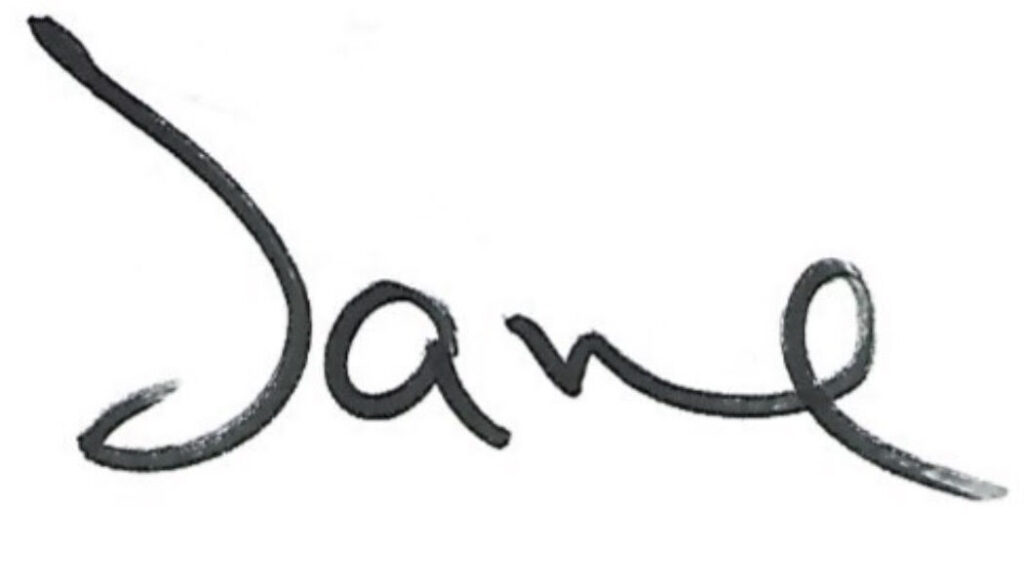Since the holidays tend to be a more stressful time, and we are already in a bonus stress year, it seemed like an excellent time to tell you about GABA, a natural stress reliever.
I just started taking it and I’m noticing it’s helping. 😊
Because I certainly am not an expert in this, I asked an expert to tell you about it. Meet Dr. Jessica Wendling. (You can find more about her at the end of the article.) I’m doing neurofeedback with Dr. Wendling to help with my ADHD. (Can I just say how much easier my life would have been if this technology had been around during the gazillion of years I was in school?)
If you are looking for a natural way to help reduce your stress, read on.
Take care,
Jane

GABA – A Natural Stress Reliever by Dr. Jessica Wendling
Gamma aminobutyric acid (GABA) is a naturally occurring chemical messenger in the brain, and its message is essentially, “relax.” GABA relieves anxiety, improves mood, and helps to reduce stress and insomnia.
Certain medical conditions and pharmaceuticals, malnourishment, or a sedentary lifestyle can reduce the levels of GABA in the body and result in:
– Anxiety or panic attacks
– Feelings of overwhelm
– Chronic stress
– Racing thoughts
– Difficulty concentrating
– Memory problems
– Muscle tension
– Headaches
– Sleep problems
If you notice any of the above symptoms, supplementing with GABA or engaging in activities that naturally increase levels of GABA in the body may be beneficial.
Practices that promote healthy GABA levels:
– Yoga
– Meditation
– Exercise
To produce GABA naturally, the following key nutrients are required:
– Vitamin B-6, found in red meat, chicken, and fish.
– Glutamate. This amino acid is found in most protein-containing foods such as cheese, milk, mushrooms, red meat, fish, and many vegetables.
– Fermented foods. The good bacteria in our gut can produce GABA for us when we eat fermented foods such as pickles, sauerkraut, kimchi, and kefir.
While the above foods and practices can support healthy production of GABA in our body, supplementing in higher doses will have a much more dramatic calming effect.
Supplementing with GABA will not treat the underlying causes of stress; however, it seems to directly reduce anxiety, sleep disturbances, restlessness, and muscle tension.
Dosing
GABA works quickly (within 20 minutes) to reduce the body’s stress response and can be taken as needed, with or without food.
One should avoid alcohol and benzodiazepines when supplementing with GABA, as they act on the same receptors and could lead to symptoms of overdose.
To reduce anxiety and increase feelings of relaxation during a stressful event:
- Start with about 300 mg. If you don’t notice a calming effect within 20 minutes, take an additional capsule.
- You can continue to take one every 20 minutes until you notice a reduction in stress or anxiety. This is how you find an appropriate dose for yourself. The next time you notice stress or anxiety, immediately take whatever dose you require.
To reduce stress/fatigue during problem solving tasks:
- GABA can be very relaxing, so a lower dose of 50 mg is recommended for daytime activities.
To improve quality of sleep and the ability to fall asleep:
- 300+ mg can be taken in the evening.
Side effects are rare, but may include stomach upset, nausea, low appetite, drowsiness and fatigue.
Recommended supplements:
- GABA Ease by Vitanica – this is a strong GABA supplement used for acute anxiety and sleep disturbances.
- GABA-Pro Calming Effect Chewable by Bioclinic Naturals – this is a lower dose of GABA in chewable form (unsweetened), good for children or for day-time stress when you need to remain alert.
You can order these supplements from FullScript, to ensure the highest quality product: https://us.fullscript.com/welcome/jwendling
Other supplements that support natural GABA production, and help to calm anxiety:
– L-theanine
– Inositol
– Magnesium
– Taurine
– Herbs such as passionflower, hops, and valerian root
In health,
Dr. Jessica Wendling
Naturopathic Physician and Neurofeedback Specialist
Dr. Wendling is a naturopathic physician with advanced training in neurofeedback systems. Having worked in diverse clinical settings, including research hospitals, community clinics, and international outreach sites, she gained recognition from the greater medical community as one of Seattle Met’s Top Doctors.
Her philosophy is to heal the root cause of dysfunction by utilizing principles of neurology and neurofeedback. By retraining the brain and modulating the stress response, many conditions resolve and performance is optimized in a natural, safe, and lasting manner.
Dr. Wendling believes that by tapping into the body’s innate wisdom, we each have the ability to transform our well-being. She currently treats patients out of her private practice in the Lower Queen Anne neighborhood of Seattle.
For more info about the doctor and other stress relief techniques, visit: https://restoreclarity.com/
